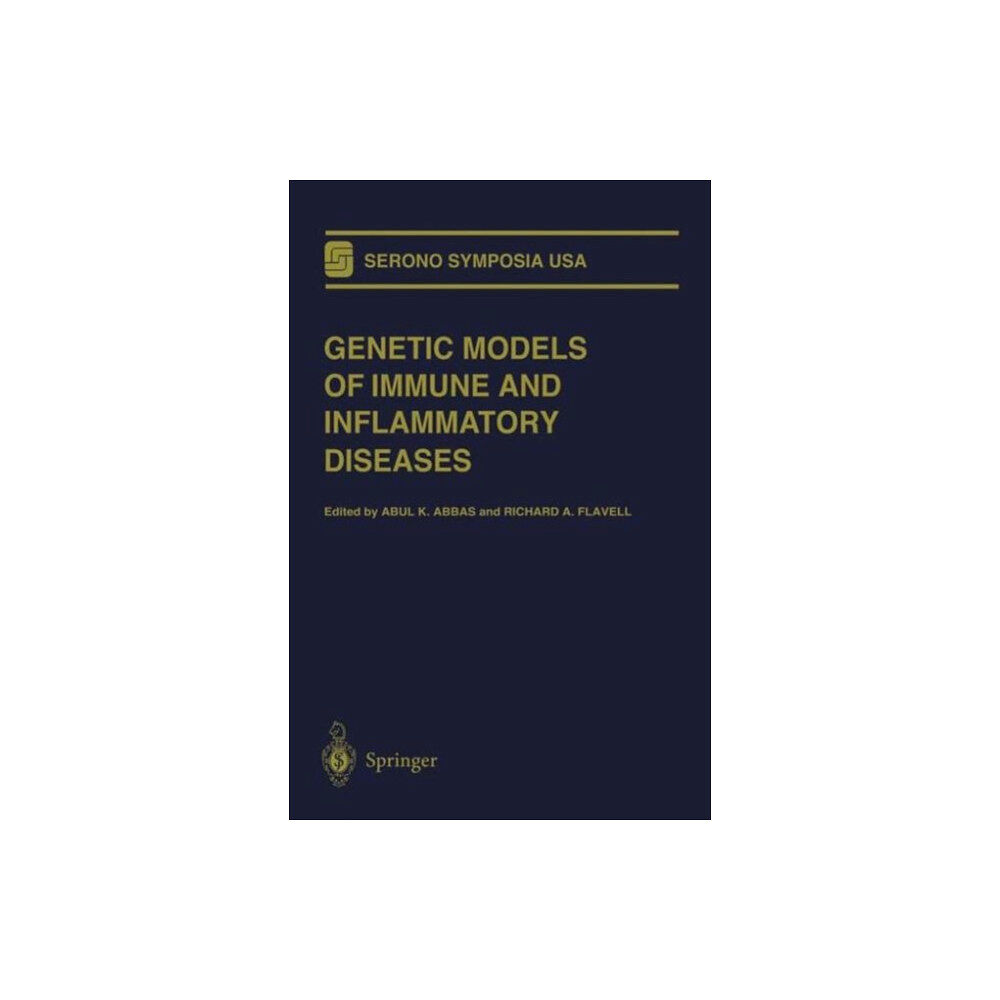- Hem
- Böcker
- Kurslitteratur
- Vård, Omsorg & Medicin
- Genetic Models of Immune and Inflammatory Diseases (häftad, eng)

Genetic Models of Immune and Inflammatory Diseases (häftad, eng)
This book contains the proceedings of the Serono Symposia USA interna tional symposium on Genetic Models of Immune and Inflammatory Dis ea...
419 kr
465 kr
Slut i lager
- Fri frakt
Fri frakt över 299:-
Snabb leverans
Alltid låga priser
Produktbeskrivning
This book contains the proceedings of the Serono Symposia USA interna tional symposium on Genetic Models of Immune and Inflammatory Dis eases held on October 20 to 23, 1994, in Savannah, Georgia. The advent of methods for introducing genes into the germlines of mice, and for targeted disruption of particular genes by homologous recombination, has provided scientists in many disciplines with an extraordinarily powerful set of analyti cal tools.
Some of the most informative applications of transgenic and gene knockout technology have been in studies of lymphocyte development and activation. The goal of this symposium was to bring together investigators using these genetic approaches for analyzing the immune system, with a view to defining common themes and novel directions.
Transgenic mice have a wide variety of important applications in immu nology. Defined proteins can be expressed in selected tissues throughout development, thus acquiring the essential characteristic of "self" antigens. Such models have been used to study how immune responses to these artificially created "self" antigens are controlled.
Antigen receptors of lym phocytes have been expressed as transgenes, and because lymphocytes are endowed with the unique property of allelic exclusion, such transgenic mice become essentially monospecific. Immunomodulatory agents have been expressed in defined tissues or throughout the body, providing tools for studying the functional consequences of dysregulated expression of biologi cal response modifiers.
Some of the most informative applications of transgenic and gene knockout technology have been in studies of lymphocyte development and activation. The goal of this symposium was to bring together investigators using these genetic approaches for analyzing the immune system, with a view to defining common themes and novel directions.
Transgenic mice have a wide variety of important applications in immu nology. Defined proteins can be expressed in selected tissues throughout development, thus acquiring the essential characteristic of "self" antigens. Such models have been used to study how immune responses to these artificially created "self" antigens are controlled.
Antigen receptors of lym phocytes have been expressed as transgenes, and because lymphocytes are endowed with the unique property of allelic exclusion, such transgenic mice become essentially monospecific. Immunomodulatory agents have been expressed in defined tissues or throughout the body, providing tools for studying the functional consequences of dysregulated expression of biologi cal response modifiers.
| Format | Häftad |
| Omfång | 177 sidor |
| Språk | Engelska |
| Förlag | Springer-Verlag New York Inc. |
| Utgivningsdatum | 2011-09-16 |
| ISBN | 9781461275206 |
Specifikation
Böcker
- Häftad, 177, Engelska, Springer-Verlag New York Inc., 2011-09-16, 9781461275206
Leverans
Vi erbjuder flera smidiga leveransalternativ beroende på ditt postnummer, såsom Budbee Box, Early Bird, Instabox och DB Schenker. Vid köp över 299 kr är leveransen kostnadsfri, annars tillkommer en fraktavgift från 29 kr. Välj det alternativ som passar dig bäst för en bekväm leverans.
Betalning
Du kan betala tryggt och enkelt via Avarda med flera alternativ: Swish för snabb betalning, kortbetalning med VISA eller MasterCard, faktura med 30 dagars betalningstid, eller konto för flexibel delbetalning.
Specifikation
Böcker
- Format Häftad
- Antal sidor 177
- Språk Engelska
- Förlag Springer-Verlag New York Inc.
- Utgivningsdatum 2011-09-16
- ISBN 9781461275206
